

Tao Te Ching
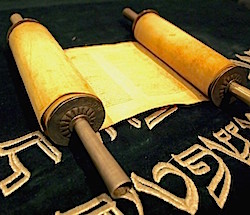
Jewish Lineage
Jewish Lineage יהודה
Ancient monotheistic religion, an ethnoreligious group, mother religion of Christianity, deep influence on Islam, Baha’i, Western secular ethics and civil law; Judaism traces its roots back more than 3000 years to the Bronze Age. An important factor in the development of Western civilization, Judaism, helped shape Western ideals and morality. Branches today span the philosophical spectrum from rigid Orthodox Judaism to non-theistic Humanist Judaism. Since ancient times, frequently the focus of political and religious prejudice, persecutions, expulsions, and ghettoization; Jewish culture and identity only seems to have deepened.
People (37)
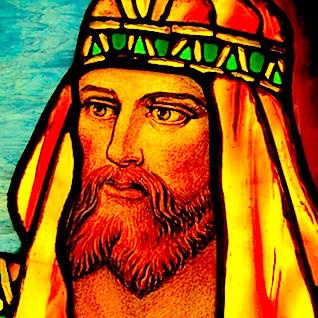
Solomon (Jedidiah)
990 – 931 BCE
Magician, exorcist, great prophet of Judaism and Islam
Wealthy and wise king of Israel, son of David, builder of the First Temple in Jerusalem; Solomon – known as a great prophet in both Judaism and Islam, a "Righteous Prophet and King" in the Eastern Orthodox Church, and a great hero in Freemasonry – is not without his detractors for following foreign traditions and marrying foreign wives including a Pharaoh's daughter and Naamah, the only foreigner Queens Mother of Israel or Judah. His openness, wisdom and refusal to fixate on dogmatic orthodoxy invites him to this list. His renown as magician and exorcist include famous legends like the One Thousand and One Nights’ genie sealed in a bottle with his Seal.
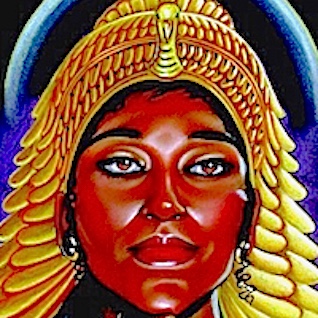
Makeda, Queen of Sheba (Bilkis, Rainha de Sabá)
10th C. BCE
Embodiment of Divine Wisdom
Viewed as the embodiment of Divine Wisdom in the Kabbalistic and mystical Christian traditions, immortalized in the Hebrew Bible and the Muslim Koran, in Persia considered a daughter of a Chinese king and a fairy spirit, part of the founding myths for the modern states of Israel and Ethiopia; Makeda is the first person referred to as Queen in the Bible and ruled over Upper Egypt, Ethiopia, and parts of Arabia. Extremely wealthy and known as a wise prophetess, she challenged Solomon’s wisdom and later had his son, Menelk who became the first emperor of Ethiopia.
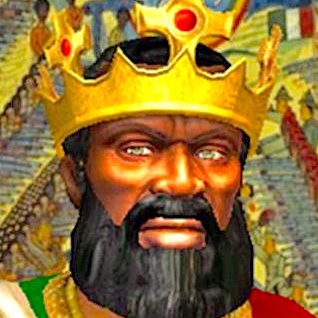
Menelik I (Ebna la-Hakim, "Son of the Wise")
c. 900-820 BCE
First Jewish Emperor of Ethiopia
According to traditional sources and memorialized in the Bible’s the Song of Songs, Menelik was the son of King Solomon of ancient Israel and Makeda, Queen of Sheba. Solomon wanted Menelik to rule Israel after him but instead (with Solomon’s blessings) he secretly brought the Ark of the Covenant (symbol of alliance between the two races, white and black) to Ethiopia where it remains today in Aksum. This made Ethiopia “God's chosen country” and established Menelik as the first Jewish Emperor of Ethiopia and founder of the Solomonic dynasty that ruled Ethiopia for almost 3000 years, includes the Magi said to have visited the manger at Jesus’s birth, and continued until the fall of Emperor Haile Selassie in 1974 when it transformed into the Rastafari movement, the Lion of Judah as symbol of black pride, and the mythology of Bob Marley.
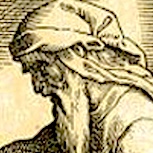
Koheleth
c. 330–180 BCE
Author of the most mystical, the most in harmony with the non-thought lineage part of the Bible, Koheleth anonymously wrote Ecclesiastes, part of the Hebrew Bible as well as one of the “canonical Wisdom Books” recognized by most Christian denominations. It focuses on the meaning of life, the best way to live, the futility of materialism and wisdom as the highest value. Thomas Wolfe called it “the noblest, the wisest, and the most powerful expression of man's life upon this earth—and also the highest flower of poetry, eloquence, and truth.” Koheleth himself remained anonymous and obscure, not taking credit for this great work.

Jesus
3 BCE – 30 CE
Descriptions of Jesus were written in New Testament documents between 70 and 150 CE, a time of many different Christian books, many different gospels. In 170 CE church leaders first decided which books were “official,” which weren’t. More were added later and the modern version finalized at The Council of Hippo in 393. Some historians believe this selection was at least partially based on politics, patriarchy, and power. In any case, many of the banned and burned books known as Gnostic Gospels seem to have more wisdom and understanding, more connection to the non-thought lineage than the officially recognized texts. Many of the quotes here come from one of these, The Gospel of Thomas discovered in 1945.

Mary of Magdala
3 BCE – 120 CE
Called the ”Apostle to the Apostles" by the 3rd century theologian Hippolytus, the story of Mary of Magdala resembles that of Mahākāśyapa – the only one of the Buddha’s disciples to understand the Flower Sermon. In the Gospel of Mary, she was the only disciple to understand Jesus’ inner teachings about basic goodness, discovering the truth within ourselves rather than an external authority, the dangers of following charismatic leaders and sets of rules and laws rather than the wisdom within.
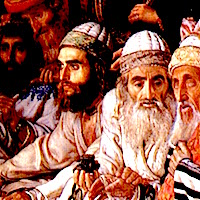
Rabbinic Sages
20 – 200 CE
Rabbinic Sages (20 – 200 CE)
Academies in Galilee, Tiberias and Caesarea; teachers of the Mishnah, transmitters of the Jewish traditions passed down for centuries orally, and written down during the first 200 years of this millennium; these sages taught and recorded commentaries and reflections on the Hebrew Bible. Their writings became the foundation of Jewish law, ethics, philosophy, and customs eventually evolving into over 6,200 pages.
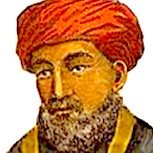
Solomon ibn Gabirol שלמה בן יהודה אבן גבירול (Avicebron)
1021 – 1070 CE
The greatest poet of his age, a Jew for over 600 years regarded by Moslems as a Muslim and by Christians as a Christian, believed a Christian by William of Auvergne who called him “the noblest of all philosophers;” Gabirol grew up in hardship and wandered for years in such poverty that “a fly could now bear me up with ease.” A huge influence on both Christianity and Islam, he championed reason over faith, compiled a book of proverbs independent from Judaism that included wisdom sayings from China, and wrote one of the greatest poems in all of Hebrew literature.

Baruch Spinoza
1632 – 1677 CE
One of the most important, radical, and influential philosophers in the modern era, Spinoza established a strong foundation for democratic political thought, the 18th-century Enlightenment, and a view beyond sectarian religion. Known as ”the prince of philosophers” and one of our greatest thinkers, Spinoza was born Jewish but was excommunicated at an early age. Criticized and ridiculed during his life, he was an important inspiration for Karl Marx, Nietzsche, Goethe, Santayana, Borges, and the deep ecology movement. Albert Einstein said Spinoza was the biggest influence on his world view and Will Durant called him his "favorite philosopher."
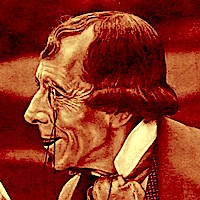
Disraeli, Benjamin (Earl of Beaconsfield )
1804 – 1881 CE
Political balance between mob rule and tyranny
Highly accomplished two-time UK Prime Minister (and only one ever born Jewish), active novelist, poet, close friend of Queen Victoria, and one of the most influential European statesman; Disraeli led a complex and difficult to categorize life. Many saw him as an eloquent charlatan; many as a strong, capable, and patriotic leader. Countering the status quo attitude toward Jews as being inferior, he redefined Judaism as race rather than religion and described Jews as superior in talent and influence. This ironically, may have led to the later fear and resentment toward Jews that culminated in programs and concentration camps. A founder of the modern Conservative party, he brought an isolationist Britain into collaboration with Europe. After the failed Indian Mutiny of 1857 (caused by pig and cow greased bullets) and the annexation of India to Britain, he proclaimed Queen Victoria “Empress of India.” Although he promoted a kind of paternalistic monarchy and imperialism, his voice remains relevant in the ever-challenging balance between overly democratic mob rule on one side and autocratic tyranny on the other.
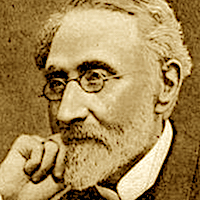
Heinrich Graetz
1817 – 1891 CE
Pioneering Jewish historian
Although Graetz became the most esteemed 19th century Jewish historian and one of the first to write a major Jewish history from a Jewish perspective, he was sued for libeling the Jewish religion and later accused of heresy. In spite of that, his history became very popular and influential. It was a ground-breaking effort and brought to the world a new interest in Jewish history. Later historians accused him of presenting a too weepy view of this history, an over-emphasis on the tragic suffering, and an ignoring of the more positive and joyful events; however, his deeply difficult and pioneering works remain.
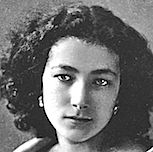
Sarah Bernhardt
1844 – 1923 CE
“One of the finest actors of all time”
“The most famous actress the world has ever known", “one of the finest actors of all time,” “first international entertainment icon,” and “notorious liar;” Sarah Bernhard acted and sang for over 60 years starring in many of the earliest films ever made. Admired by everyone from Sigmund Freud to Mark Twain to Czar Alexander III, her mother was a prostitute and Sarah forged a birth certificate to claim French citizenship. Expelled from her first acting school for slapping a fellow actress, Sarah became mistress to a Belgian prince, to a famous courtesan, and slept in a coffin to better understand tragedy. During a war she converted her theatre into a hospital and took care of wounded soldiers.
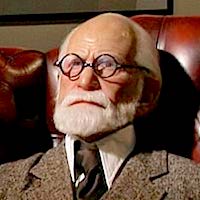
Sigmund Freud
1856 – 1939 CE
Dismissed and laughed at because of his more outlandish theories, it’s too easy to overlook Freud’s many deep insights. Founder of psychoanalysis and inspiration/influence for many of the important psychologists who came after him including Jung, Adler, Erich Fromm, Wilhelm Reich, and Fritz Perls; he developed many techniques and understandings for treating mental illness—ideas like free association, transference, the Oedipus complex, repression, libido, a theory of the unconscious, and an id-ego-super-ego psychic structure. Fromm—though critical in many ways—described Freud (along with Marx, and Einstein) as an "architect of the modern age,” believed he permanently changed the way we understand human nature, but thought psychoanalysis quickly became corrupted. Although such a famous name today, during his lifetime Freud shared some of the obscurity common to most history-changing people. His influential book, The Interpretation of Dreams (1900) only sold 351 copies during the first 6 years after publication.
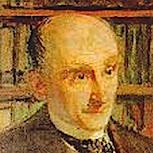
Henri-Louis Bergson
1859 – 1941 CE
The Plotinus of our era, proponent of the Lucretian tradition, awarded the 1927 Nobel prize in Literature and France’s highest honor the Grand-Croix; Bergson developed an open and nonsystematic philosophy based on mystical experience and a revolutionary concept of Multiplicity to replace dualism and Hegel’s dialectic. Close friend and collaborator with William James; Nikos Kazantzakis studied under him, his ideas on creative evolution influenced Teilhard de Chardin, and his ideas were provocative enough to be condemned by the Vatican and criticized by Bertrand Russell, Heidegger, Sartre, T.S. Eliot, Julian Huxley, Einstein, even Virginia Woolf. A Jew converted Catholic, he emphasized immediate experience and intuition over reason and science — the sense over the words.
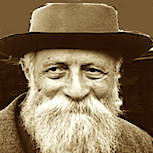
Martin Buber מרטין בובר
1878 – 1965 CE
Influential philosopher, educator, and political activist; Buber challenged materialistic thinking and promoted a deep interpersonal respect and appreciation. Like most of the people in these biographies, he warned against belief systems and advocated a conceptless-mind and open-hearted experience of the world. He inspired Jewish cultural renewal, developed an educational model based on the whole person, and supported a bi-national Israeli-Palestinian state. Related to 16th century rabbi Meir Katzenellenbogen, Helena Rubinstein and Karl Marx; he challenged Hegel, Kant, Kierkegaard and Nietzsche. Not considering Jewish culture or religion necessary, he was criticized by Jewish scholars for this as well as emphasizing direct experience above Jewish law.

Albert Einstein
1879 – 1955 CE
Although he made his name synonymous with genius as the father of modern physics and his E = mc2 became ”the world's most famous equation,” Einstein remained humble and unassuming. Although winning a Nobel Prize and writing over 30,000 documents, he didn’t let himself be seduced by fame and fortune but championed civil rights, non-violence, and - like Chuang Tzu and other famous Taoists - refused political honors including becoming the president of Israel. He worked hard for checking the power of nation states with a democratic global government, believed in a pantheistic god, and as an avid violin player said, “I often think in music.”
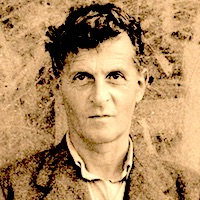
Ludwig Wittgenstein
1889 – 1951 CE
One of the world's most famous philosophers
From one of Europe's most wealthy families, Wittgenstein inherited a vast fortune and then—believing that money hinders philosophy—gave it away to artists, writers, and to his brothers and sisters. One of the world's most famous philosophers, he worked incognito teaching in remote Austrian villages and in hospitals during World War II. He kept most of his writings unpublished until after his death when his books like Philosophical Investigations became recognized as some of the most important books of 20th century philosophy. His strong influence continues today in almost every field of social sciences and the humanities.
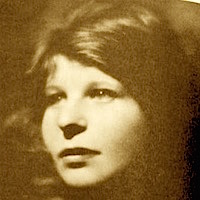
Ariel Durant (Chaya Kaufman)
1898 – 1981 CE
Brilliant conversationalist, champion of women’s rights, student, lover, wife, muse, and equal to Will Durant; Ariel emigrated with her mother to America from the Ukraine when 3 and grew up on the New York streets learning to fight and take care of herself. Will married her when she was 15 and he was 28 and her teacher. They spent the next 68 years together on an intellectual, contemplative, and literary journey writing The Story of Civilization and many other books and articles. Named "Woman of the Year,” she shared a Pulitzer Prize and the Presidential Medal of Freedom with her husband. Constantly introducing him to radical artists, poets, and free-spirits from Greenwich Village to Woodstock, she balanced Will’s pedantic, scholastic personality with love-of-life adventurism. Although running away several times during the early days of their marriage, they came to represent the depths of close relationship, the joining of the two halves of the complete being described by Plato, and the possibilities for marriage.
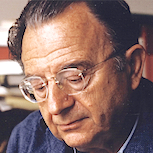
Erich Fromm
1900 – 1980 CE
One of the most powerful voices of his era promoting the true personal freedom beyond social, political, religious, and national belief systems
One of the world’s leading psychoanalyst-philosophers, “forefather of socialist humanism,” civil rights activist, and anti-Vietnam protestor; Fromm was born Jewish, became a rabbi but then came to believe that religion only breeds hatred, inequality, and discord. Becoming another “apostle of doubt,” he criticized political ideologies, cultural convictions, and all authoritarian value systems. Escaping Hitler and the Nazis in Germany, he came to the US where his talks and writings initiated the beginning of political psychology and explored the modern influences toward fascism, irrational behavior, consumerism and the “escape from freedom.” As most of our wisdom holders, he focused on unifying opposites, in particular as in his last book, paradox between “having” and “being.”
Interview with Mike Wallace
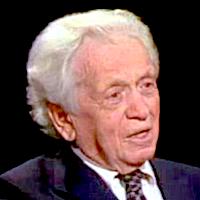
Max Lerner (Maxwell Alan)
1902 – 1992 CE
Journalist, professor, humanist, and controversial cultural commentator; Lerner supported Roosevelt’s New deal, fought against racial discrimination, and gained a high place on Nixon’s hate list. He mainly supported progressive causes but went along with the internment of Japanese Americans during World War II and backed Ronald Reagan. Untied to unthinking political dogma, he was considered a controversial liberal during the 50’s and 60’s but more conservative during the 80’s. A close friend of Elizabeth Taylor, he worked on antiwar efforts, taught at Harvard, Sarah Lawrence, Wellesley, Brandeis, and wrote for the New York Post, the New Republic, The Atlantic, Saturday Review, and many other publications. He applied his dedication to personal responsibility in a struggle with lymphatic cancer which he won and described in a book, Wrestling with the Angel.
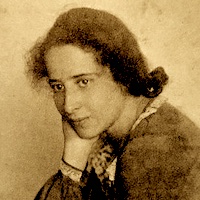
Hannah Arendt
1906 – 1975 CE
Fearless researcher into the darker reaches of the human psyche
An influential philosopher, historian, and deep thinker; Arendt developed some of the most important political theories of the 20th century. An early, 1932 critic of the Nazi Party; she was arrested the year Hitler came into power, imprisoned, escaped, and her German citizenship was taken away in 1937. Arrested again in France, she escaped again and eventually came to the USA in 1941
Influenced by and a major influence on Martin Heidegger, she studied under him and had a four-year affair when she was 17 and he 35. She also studied with Karl Jaspers who became her doctorate degree supervisor.
Her research and thinking focused on the formation of nationalistic, fascist, and totalitarian systems and how ordinary people become controlled into following them. She applied these theories in covering the trial of Adolf Eichmann for the New Yorker in 1961 which created one of the biggest controversies of the era.
Instead of accepting the common depiction of Eichmann as an evil monster, she described him as a victim of an unwillingness to think clearly and instead mindlessly take orders. This refuted the dualistic understandings and accepted ideas of the time about unquestioning obedience to superiors. These were some of the most relevant issues in preventing more totalitarian take-overs but brought about intense criticism of her from many sides.
Perhaps Jung's ideas about projection were at play here: people not seeing or admitting the pulls toward this kind of evil in themselves and projecting it out completely on Eichmann whom she described as only "banal," ordinary, fixated on the duty of obedience, and abandoning critical thinking — qualities possibly shared too closely by the critics.
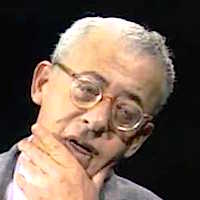
Saul Alinsky
1909 – 1972 CE
Saul Alinsky (1909 – 1972)
“Founder of modern community organizing,” “creator of a backyard revolution in cities across America,” champion of the poor and powerless; Alinsky became a strong influence on Cesar Chavez, Hillary Clinton, Barack Obama and Dolores Huerta but his methods and strategies were also studied and used by Tea Party organizers. Dedicating his own work to improving the living conditions in poor communities, he was active in the labor movement, poverty alleviation across the USA, in black ghettos, and California barrios. Reviled and banned by establishment politicians but admired and imitated by counterculture-era organizers; he was described by William F. Buckley Jr. as an “organizational genius,” by Adlai Stevenson as “a most faithfully reflect[ion] our ideals of brotherhood, tolerance, charity and dignity of the individual,” and according to Time magazine he “altered democracy.”
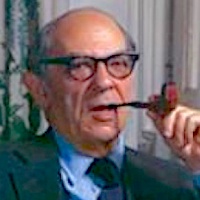
Isaiah Berlin
1909 – 1997 CE
"the world's greatest talker"
Philosopher, political theorist, translator and historian; Berlin lived in Petrograd when he was six during the Russian revolutions of 1917 and then moved to the UK. A star student, he translated famous books from Russian into English and joined the Diplomatic Service during World War II. Highly respected for his lifetime of defending civil liberties, pluralism, and liberal theory; he also became a strong and lasting voice against Communism. With penetrating insight he applied the lessons of history to modern-day problems like nationalism, totalitarianism, racism, and religious bigotry.
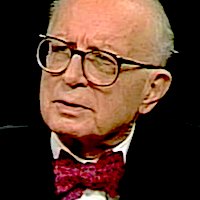
Daniel J. Boorstin
1914 – 2004 CE
American intellectual Paul Revere
“An intellectual Paul Revere,” American historian, US Congressional Librarian, Rhodes Scholar, and Pulitzer Prize winner; Boorstin became a Communist Party member when young, a prominent conservative in later life. Promoting the "consensus school" of history, he praised entrepreneurs and inventors, criticized conformity, bureaucracy, slavery to tradition, and an historical emphasis on class conflict. On a parallel track with Marshall McLuhan he praised, analyzed, and warned about the unintended consequences and social upheaval that inevitably arises from new technology. With self-effacing insight, he looked deeply into American culture both praising and criticizing aspects of this unprecedented historical experiment.
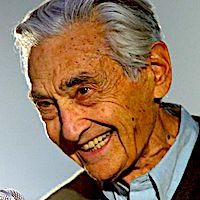
Howard Zinn
1922 – 2010 CE
Historian of the oppressed and defeated
Educational innovator, historian, author of 20+ books, and democratic socialist; Zinn grew up in a family of factory workers who couldn’t afford to buy books or magazines. In a dramatic and life-molding event, when young and participating in a peaceful political rally, he was knocked unconscious by mounted policing charging on the protestors. During the Vietnam War, he supported Vietnam Veterans against the War, the Civil Rights and Labor Movements. He backed the Native American, Black, and Women’s equality efforts, opposed the 2003 invasion of Iraq, and the extensive military bombing of civilian targets. Realizing the omni-influence of the phrase, “History is written by the victors,” he worked hard to popularize the stories of the morally superior but physically defeated historical groups. The success of these efforts could be measured by the identities and allegiances of his major critics: Republican Indiana Governor Mitch Daniels tried to keep his book out of state schools, because of his support for Martin Luther King, the FBI added him to their Security Index and label him a high security risk, and—even as recently as 2017—an Arkansas legislator tried to ban his books from public schools.

Reb Zalman
1924 – 2014 CE
Major founder and proponent of the Jewish Renewal movement and writer of the first English book on Jewish meditation; Rabbi Zalman when young was interned in Vichy French detention camps and escaped the Nazi advance in Europe by coming to America. In 1962 after experimenting with LSD, he left his more conservative tradition and became a voice in the counter-culture movement championing feminism, the Gaia hypothesis, and a kind of mystical pantheism. Recognized as a sheikh (wise elder) by a Sufi order, given an honorary doctorate by a Unitarian school of ministry, and World Wisdom Chair at the Buddhist Naropa University; he was an important voice in deep ecumenical dialogues

Allen Ginsberg
1926 – 1997 CE
Eloquent instigator, figurehead and voice for the Beat Generation of the ’50s, the counterculture of the 60’s and the flowering of Buddhism in America during the 70’s and 80’s; Ginsberg symbolized a powerful influence against materialism, the military-industrial complex, and conformity. His poem "Howl” written during a time when homosexuality was a crime in every U.S. state was confiscated by police, seized by US Customs, and started a famous obscenity trial that led to more legal and cultural acceptance for the LGBT community. For decades, a powerful advocate for free speech, gay rights, and non-conformity; a tireless opponent and protestor against the Viet Nam War, the War on Drugs, imperialism, the failure to protect refugees, and persecution of minorities; at the request of his Tibetan teacher Chögyam Trungpa and along with Anne Waldman started The Jack Kerouac School of Disembodied Poetics.

Toni Packer
1927 – 2013 CE
A Zen teacher minus the 'Zen' and minus the 'teacher.’
Toni Packer (1927 – 2013)
Dropped-out successor to famous Zen teacher Phillip Kapleau, developer of the "meditative inquiry" practice, and founder of the Springwater Center; Toni Packer grew up in Nazi Germany needing to hide her Jewish heritage while becoming increasingly skeptical of authority. Following in the Krishnamurti lineage of spiritual anti-authoritarianism, she stopped calling herself a “Buddhist” and became "...a Zen teacher minus the 'Zen' and minus the 'teacher.’ ” Exiled from the Rochester Zen Center, she taught finding the essence, the sense, the true meaning hidden by dogma, rituals, organized religions and cultural traditions.

Noam Chomsky
1928 CE –
A Jew now banned from Israel but awarded World Peace awards for the promotion of human rights; vilified by corporate interests and the mainstream press but given honorary degrees from over 50 colleges and universities; arrested multiple times for his political activism but one of the single most cited scholars in academic circles; on Nixon's Enemies List and illegally watched by the CIA for many years but considered by progressives “a figure of enlightenment and inspiration;” called by the far right “a hard-boiled anti-American monomaniac” but a foundational pioneer in the fields of cognitive science, linguistic theory, computer science, and evolutionary psychology; Chomsky may be the most important intellectuals alive today.
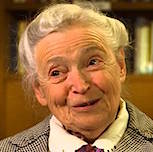
Mildred Dresselhaus (“the Queen of Carbon”)
1930 – 2017 CE
Growing up impoverished in a dangerous, multiracial neighborhood where teachers in the schools spent most of their time disciplining with little time for teaching; Dresselhausbecame M.I.T.’s first woman full professor, organized their first Women’s Forum, worked hard to encourage more women in science, and now 22% of M.I.T.’s faculty are women. Winning numerous awards including the Presidential Medal of Freedom and a pioneering researcher into the many uses of “buckyball” carbon atoms, she wrote over 1700 scientific papers, co-wrote 8 scientific books, helped discover many new scientific advancements including her research that developed the nonotube - something as strong as steel but one 10,000th the width of a human hair.
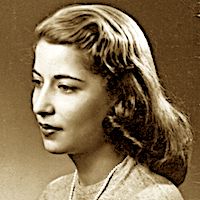
Ruth Bader Ginsburg
1933 – 2020 CE
Fierce and influential voice for justice, equality, and women's rights
Second female Supreme Court Justice, professor, "pop culture icon,” champion of gender equality and women's rights; Ginsburg became a fierce and influential voice on the direction of US law. The first Justice to officiate a same sex-wedding, her work led to ending gender discrimination in many areas and extended the Constitution’s Equal Protection Clause to women. Without neglecting her Supreme Court work, she’s struggled through the death of a husband, heart surgery, colon. and pancreatic cancer. To stay healthy and continue her work, she found a personal trainer, started working out, and at 80 could still do 20 full push-ups. Named one of the world’s 100 Most Powerful Women in 2009, “Women of the Year” in 2012, and one of Time’s “100 most influential people” in 2015; her influence continues.
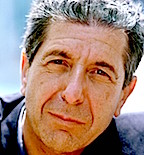
Leonard Cohen
1934 – 2016 CE
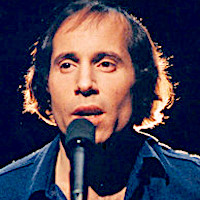
Paul Simon
1941 CE –
Prolific planter of musical, cultural wisdom seeds
One of the world’s most famous singer-songwriters since 1956 and still going strong, Paul Simon’s poetry and music has embedded inner space modules of wisdom in world culture and consciousness. His honors include 16 Grammys, 3 Albums of the Year, a spot on Time magazine’s "100 People Who Shaped the World,” and being listed on both Rolling Stone’s 100 Greatest Guitarists and 100 Greatest Songwriters of All Time. A strong advocate of music education for children, he has mentored many successful musicians and supported the non-profit Children's Health Project, The Children's Health Fund, the Turkana Basin Institute, and Little Kids Rock that provides free musical instruments and lessons for children in public schools. Through all the ups and downs of his careers, he’s continually recreated both himself and his music keeping his creative edge sharp and his social consciousness clear.

Bob Dylan
1941 CE –
Though thought of in many different ways by different people, at heart, Bob Dylan may most essentially represent a modern-day Taoist sage, a continuation of Lao Tzu’s lineage. Awarded the Nobel Prize for Literature in 2016 and called the “Shakespeare of his generation,” he wrote over 500 songs recorded by more than 2000 singers and sold tens of millions of albums. Though world famous for decades and beyond “successful” in numerous ways, his humility and refusal to make a big deal out of himself remains. His music and message transcends his voice and culture. As relevant today as it was in the 60’s, it continues as a major influence on our cultural conscience and consciousness. And this influence shows all signs of continuing far into the future.
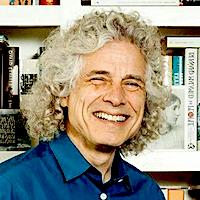
Steven Pinker
1954 CE –
Humanistic scientist, insightful cultural commentaror
Harvard professor, linguist, cognitive/evolutionary psychologist, humanist, and insightful cultural commentator; Pinker is considered “one of the world's most influential intellectuals.” Translating the significance of new scientific and psychological discoveries into common language, his many books help make these contemporary insights useful in everyday life. Emphasizing the psychology of cooperation and communication, he became a Two-time finalist for the Pulitzer Prize and Humanist of the Year in 2006. His current book, Enlightenment Now helps transmute pessimistic, nihilistic, and negative views into an energized and inspired optimism in relation to both our social and individual states of mind.
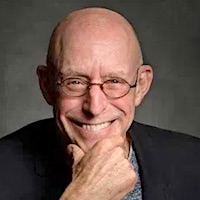
Michael Pollan
1955 CE –
Champion for Sustainable Agriculture
Journalist, professor, author, and social activist; Michael Pollan's in-depth and yet intriguing books and articles challenge many of our modern agricultural practices. His historical perspective on agribusiness and how it effects our health, environment, culture, and wellbeing clarifies the problems and gives clear directions toward solutions. He criticized and explained the problems with factory farming, GMOs, and the over-growing of corn effectively enough to provoke a fierce response from the concerned interest groups.
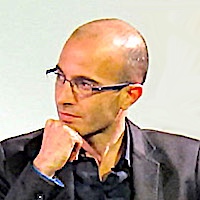
Yuval Harari יובל נח הררי
1976 CE –
Israeli historian, professor, and philosopher
Harari lives with his husband in a small, cooperative community near Jerusalem where he teaches, and writes thoughtful, challenging books. His best-seller, Sapiens—already translated into 45 different languages—examines our history going all the way back to the Cognitive Revolution 70,000 years ago and describes an unconventional but hard-to-dismiss view of progress, technology, free will, and the future. A strong advocate for animal rights and close student of S. N. Goenka, he practices and teaches Vipassana meditation as well as using it as a research tool for developing his understanding of history, evolution, and the nature of human cultur
Related Sources (4 sources)
Ecclesiastes קֹהֶלֶת by Koheleth
Hebrew Bible, The Tanakh by Rabbinic Sages
Quotes about the Jewish Lineage (28 quotes)
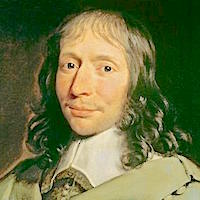
“The Jews hold a middle place between the Christians and the pagans. The Pagans do not know God, and love only the earth. The Christians know God, and do not love the earth.”
Comments: Click to comment
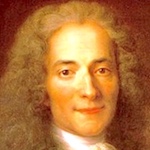
“Tell me if there have been peoples other than the Christians and the Jews in whom zeal and religion wretchedly transformed into fanaticism, have inspired so many horrible cruelties…. Yes, the Mohammedans… As for the other nations there has not been one right from the existence of the world which has ever made a purely religious war.”
Comments: Click to comment
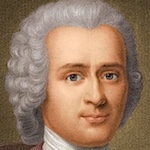
“The Jews afford an astonishing spectacle... They mingle with all peoples, yet are not confused with them; they have no rulers, yet they are always a people. Of all the systems of legislation now known to us, only this one has undergone all tests, has always been steadfast.”
Comments: Click to comment
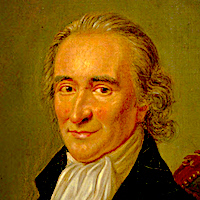
“I do not believe in the creed professed by the Jewish church, by the Roman church, by the Greek church, by the Turkish church, by the Protestant church, nor by any church that I know of. My own mind is my own church. All national institutions of churches, whether Jewish, Christian or Turkish, appear to me no other than human inventions, set up to terrify and enslave mankind, and monopolize power and profit.”
Comments: Click to comment
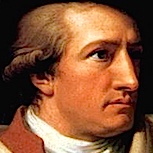
“Energy is the basis of everything. Every Jew, no matter how insignificant, is engaged in some decisive and immediate pursuit of a goal… It is the most perpetual people of the earth…”
Comments: Click to comment

“The laws of the Jews were the basest and most oppressive of human codes and—being like all other codes given under the pretense of divine command—were... the Abomination that maketh desolation, i.e. State Religion which is the source of all Cruelty.”
Comments: Click to comment

“In its explanation of the origin of the world, Judaism is inferior to any other form of religious doctrine professed by a civilized nation, it is the only one which presents no trace whatever of any belief in the immortality of the soul.”
Comments: Click to comment
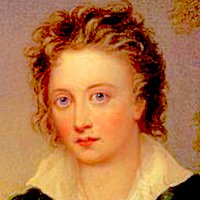
“All that miserable tale of the Devil and Eve, and an Intercessor with the childish mummeries of the God of the Jews, is irreconcilable with the knowledge of the stars.”
Comments: Click to comment
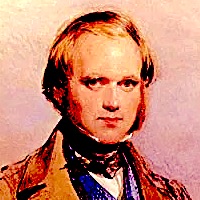
“I had gradually come to see that the Old Testament from its manifestly false history of the world, with the Tower of Babel, the rainbow at sign, &c., &c., and from its attributing to God the feelings of a revengeful tyrant, was no more to be trusted than… the beliefs of any barbarian.”
Comments: Click to comment

“Judaism is not a religion of the present but of the future [which looks] forward to the ideal future age . . . when the knowledge of God and the reign of justice and contentment shall have united all men in the bonds of brotherhood.”
Comments: Click to comment
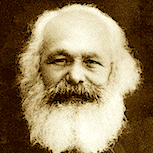
“The emancipation of the Jews in its last significance is the emancipation of mankind from Judaism.”
Comments: Click to comment
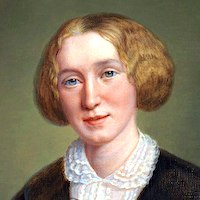
“The Jews are among the aristocracy of every land; if a literature is called rich in possession of a few classic tragedies, what shall we say of a national tragedy lasting for 1500 years in which the poets and actors were also the heroes?”
Comments: Click to comment
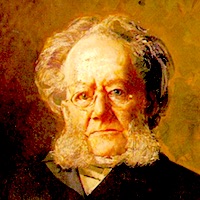
“take the Jewish people, the aristocracy of the human race—how is it they have kept their place apart, their poetical halo, amid surroundings of coarse cruelty? By having no State to burden them. Had they remained in Palestine, they would long ago have lost their individuality in the process of their State's construction, like all other nations.”
Comments: Click to comment
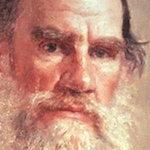
“What is the Jew?...What kind of unique creature is this whom all the rulers of all the nations of the world have disgraced and crushed and expelled and destroyed; persecuted, burned and drowned, and who, despite their anger and their fury, continues to live and to flourish... The Jew - is the symbol of eternity. ... He is the one who for so long had guarded the prophetic message and transmitted it to all mankind. A people such as this can never disappear. The Jew is eternal. He is the embodiment of eternity.”
Comments: Click to comment

“The Jews are members of the human race—worse I can say of no man... Anti-Semitism is the swollen envy of pygmy minds, meanness, injustice”
Comments: Click to comment

“The Egyptian, the Babylonian, and the Persian rose, filled the planet with sound and splendor, then faded to dream-stuff and passed away; the Greek and the Roman followed; and made a vast noise, and they are gone; other people have sprung up and held their torch high for a time, but it burned out, and they sit in twilight now, or have vanished. The Jew saw them all, beat them all, and is now what he always was, exhibiting no decadence, no infirmities of age, no weakening of his parts, no slowing of his energies, no dulling of his alert and aggressive mind. All things are mortal but the Jew; all other forces pass, but he remains. What is the secret of his immortality?”
Comments: Click to comment
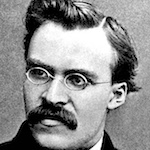
“The Jews performed a miracle by inverting traditional values—'poor' became a synonym for 'saint,' 'rich' for 'evil' and 'violent.' In this they brought about and began a slave insurrection in morals and this is where their significance as a people can be found.”
Comments: Click to comment

“The Jews, however, are beyond all doubt the strongest, toughest, and purest race at present living in Europe; they know how to succeed even under the worst conditions (in fact better than under favorable ones) by means of virtues of some sort, which one would like nowadays to label as vices-owing above all to a resolute faith which does not need to be ashamed before 'modern ideas'”
Comments: Click to comment

“After the Middle Ages, the Jews still contributed largely to civilization as individuals, but no longer as a race.”
Comments: Click to comment
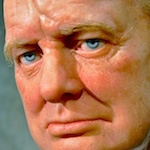
“Some people like the Jews, and some do not. But no thoughtful man can deny the fact that they are, beyond any question, the most formidable and the most remarkable race which has appeared in the world.”
Comments: Click to comment

“So prominent was the Jewish role in the foreign commerce of Europe that those nations that received the Jews gained and the countries that excluded them lost in the volume of international trade.”
Comments: Click to comment

“Antisemitism reached its climax when Jews had similarly lost their public functions and their influence, and were left with nothing but their wealth.”
Comments: Click to comment
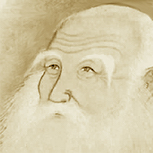
“Disappointment, poverty, suffering, and despair create a fertile planting mix for religious and political extremism. The more desperation people find themselves in, the more welcoming they become to promises of salvation. The more degraded the conditions we find ourselves here on earth, the more appeal we have for visions of heavenly perfection. Perhaps having the most vivid and pleasurable description of heavenly bliss described by a political or religious dogma; the more attractive to poverty-stricken, despairing populations. This could explain the rapid growth and power of the Catholic Church during the Middle Ages, of Islamic extremism in today’s world.”
Comments: Click to comment
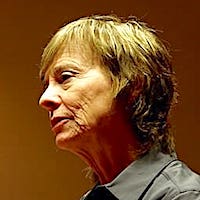
“Judaism, Christianity’s parent sect, is the most powerful of protests against nature. The Old Testament asserts that a father god made nature and that the differentiation into objects and gender was after the fact of his maleness.”
Comments: Click to comment

“The Jewish tradition is full of deep insights and noble values—though it is also full of questionable ideas and of racist, misogynist, and homophobic attitudes... Jewish orthodoxy, which even today holds that Jews are intrinsically superior to all other humans... Israeli Jews, who are educated from kindergarten to think that Judaism is the superstar of human history... People fed on such a historical diet have a very hard time digesting the idea that Judaism had relatively little impact on the world as a whole.”
Comments: Click to comment
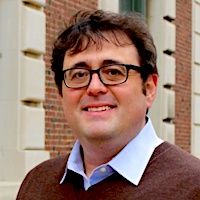
“it might seem that the important part of the Jewish story had ended with the Bible, leaving only a long sequel of passive suffering... the Jews had possessed none of the things that made for the usual history of a nation: territory, sovereignty, power, armies, kings. Instead, the noteworthy events in Jewish history were expulsions... Perhaps this constant evolution of the meaning of Jewish history is, in fact, its truest meaning.... full understanding is only possible when a historical phenomenon is concluded, when it has become part of the past. But Jewish history, after three thousand years and against all the odds, is still very much a work in progress.”
Comments: Click to comment

“I cannot name the 8 million people who share my Israeli citizenship, I have never met most of them, and I am very unlikely ever to meet them in the future. My ability to nevertheless feel loyal to this nebulous mass is not a legacy from my hunter-gatherer ancestors, but a miracle of recent history.”
Comments: Click to comment

“The Hebrew Old Testament eventually became a cornerstone of global human culture because it was warmly embraced by Christianity... In contrast, the Talmud—whose importance to Jewish culture far surpasses that of the Old Testament—was rejected... a great pity because the Talmud is a far more thoughtful and compassionate book than the Old Testament.”
Comments: Click to comment
Comments (0)